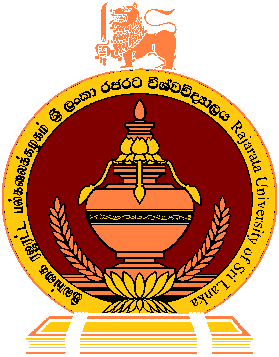Rajarata Tropical Disease Research Group (RaTDReG)
Over the last decade, the Department of Parasitology has been conducting productive and high-impact research on various tropical diseases of local and global significance, including infectious diseases and toxinology. Along the course, we have been able to secure some key research funding, as well as to initiate strong and successful collaborations with many different local and global institutes. ‘Rajarata Tropical Disease Research Group (RaTDReG)’ is our collaborative platform for all Department centred research. As RaTDReG we continue to focus on researching different aspects (epidemiological, clinical, and laboratory research) of tropical diseases towards creating improved and safe healthy living opportunities for local as well as global communities. We believe that the RatDReG initiative will further expand the opportunities for productive collaborations, funding, and high-impact research outcomes.
Current projects
Anuradhapura Snakebite Cohort: Established in 2012, Anuradhapura Snakebite Cohort is one of the largest snakebite cohorts in the world. The cohort is based in the Teaching Hospital, Anuradhapaura and has recruited over 5,600 patients by mid-2023. This cohort covers clinical and epidemiological aspects of snakebites, facilitating a range of studies on key aspects such as pathophysiology of envenoming, diagnostics, long-term effects and snakebite prevention.
Efficacy of commercial antivenoms for snakebite: This project explores the efficacy of various commercial antivenoms for preventing and reversing procoagulant, myotoxic and neurotoxic effects of snake envenoming.
Intestinal Parasitoses of school children in Anuradhapura: This project funded by the National Research Council investigates the burden of intestinal protozoan and nematode infestations among primary school children in Anuradhapura District combining copromicroscopy and molecular dignostics.
Research Laboratory Facilities
The department is equipped with research and diagnostic laboratories that facilitate conventional and fluorescent microscopy, and serological and PCR-based techniques. In addition, the department’s laboratory facilitates a wide range of in-vivo and in-vitro pharmacological studies related to venoms, and toxins. This includes in-vitro experimentation with isolated tissues in organ bath systems such as isolated nerve-muscle preparations.
Collaborating institutions
- Clinical Toxicology Research Group, University of Newcastle, Australia
- Monash Venom Group, Monash University, Australia
- South Asian Clinical Toxicology Research Collaboration, University of Peradeniya, Sri Lanka
- University of Queensland, Australia


